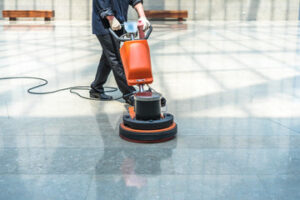What Does an Electrician Do?
Electrician In Fort Worth TX install, repair and maintain electrical wiring, equipment, fixtures, and related devices in buildings and structures. They read blueprints and use a variety of hand and power tools to perform their work.
If you are looking for a career that does not require a four-year college degree, then electrician may be the right field for you.

Electricians are skilled tradespeople who specialize in installing, maintaining and repairing electrical wiring and systems. They work in a wide range of settings, from residential homes to commercial buildings and industrial facilities. Their responsibilities include reading blueprints and electrical diagrams to determine the layout of a new system, and using testing devices to identify any problems. They also work from ladders, scaffolding, and roofs to install or repair equipment.
Some electricians are self-employed, working as subcontractors for home builders or construction companies. Others are part of a union, such as the International Brotherhood of Electrical Workers (IBEW). Union members pay dues and meet with bargaining committees to discuss issues that affect their work. They also receive benefits such as health insurance, paid time off, and a retirement plan.
In addition to their daily duties, some electricians may also be responsible for maintaining and repairing existing electrical systems. This includes identifying electrical issues and troubleshooting them using specialized tools and equipment. They can then rewire circuits or replace damaged equipment, ensuring that the system is safe and up to code.
Those who specialize in maintenance and repairs work on a variety of electrical equipment, including heating and cooling systems, motor controls, and programmable logic controllers. They can also perform upgrades to existing electrical systems, such as installing more outlets or upgrading switchgear. In some cases, they work with mechanical and plumbing professionals to ensure that all systems are compatible.
Electrical technicians are also often responsible for interacting with clients or end-users, providing guidance on electrical usage and safety precautions. They may also advise on energy-saving practices. Experienced electricians can also assist in the design process of a new building or industrial facility, collaborating with engineers and architects to ensure that all electrical systems are integrated smoothly into the overall structure.
A career as an electrician can be extremely rewarding and lucrative, with the potential to earn up to $17 per hour plus overtime. The pay scale varies depending on the level of experience, certifications, and qualifications. Entry-level positions typically require a high school diploma and an apprenticeship, which can take 4-5 years to complete. Those who pursue further education and certification can become journeymen or master electricians, which allows them to advance to management positions or run their own electrical contracting businesses.
Education and training requirements
Before an electrician can work on a job site, they must undergo some training. The exact courses they take will vary depending on their specialization, but most electrician training programs include a combination of classroom learning and hands-on experience with electrical equipment. They will also learn about wiring basics, safety procedures, and how to read blueprints.
In addition to the classroom curriculum, many electrician training programs include an apprenticeship, where students will work as apprentices under the supervision of a licensed master electrician. These apprenticeships can last 2-4 years and are vital for new electricians to gain the skills and knowledge needed to succeed in the industry.
Once an electrician has completed their education and training, they must be licensed to work on jobs. The licensing process differs by state, but typically requires a certain number of hours of practical experience to become certified. This can be done through an apprenticeship, or by completing an associate degree in electrical technology or another related field. Some universities also offer four-year bachelor’s degrees in electrical engineering, but these are rare and usually reserved for those pursuing careers as engineers.
After gaining their license, electricians must stay abreast of the latest advancements in the field. This includes keeping up with local electrical codes, technological advances, and other changes. They should also make an effort to develop good communication skills, as they will often interact with customers on a daily basis. This may involve describing the problem, explaining the solutions, and answering questions.
Electricians should be physically fit, as the nature of their work involves a lot of heavy lifting and climbing. They may need to lift large objects, climb up and down ladders, or squeeze into tight spaces. To this end, they should try to get regular exercise and build up their strength. They may also want to consider taking a fitness class to help them prepare for the physical demands of their career.
Finally, an electrician should have strong math skills. This is because they will need to perform a lot of calculations while working in the field, using equations that include frequency, voltage, and phase. They should also be able to solve problems and make quick decisions under pressure.
Work environment
Electricians work in a variety of settings, including residential, commercial, and industrial. Their work can be very hands-on, and requires them to follow strict electrical codes and safety standards. They may also need to work in tight spaces or at heights. This career is ideal for people who enjoy working with their hands and are detail-oriented.
Electrician jobs are available across the country and around the world, so workers can find a position that suits their lifestyle and career goals. Many electricians start their careers as apprentices, undergoing hands-on training with experienced mentors to learn the trade’s fundamentals. Once they have completed their apprenticeship, they can become licensed journeymen electricians and take on more complex projects. Those who wish to advance in the field can become project managers or electrical inspectors.
Construction Electricians are responsible for installing electrical systems in new construction and building renovations. They work closely with architects and construction teams to ensure that the wiring is properly integrated into the overall design. They also use their knowledge of the latest technologies to provide solutions for home automation and security.
Inside wiremen are responsible for installing lighting fixtures, outlets, and circuit breakers. They are skilled at navigating the challenges of residential wiring and comply with local building codes. They can also install fire alarms and electrical panels. Inside wiremen often work in an office setting, though some are also required to spend significant time on the road.
Low voltage electricians are primarily concerned with telecommunications, network cabling, and alarm systems. These specialists install and maintain these systems, ensuring that they are safe and secure. They can also help businesses integrate these systems into their existing infrastructure.
Other specialized electricians include marine electricians, who are responsible for the electrical systems on ocean-going vessels and military vehicles. They use a wide range of equipment to monitor and control vehicle and ship electrical systems, including power distribution, lighting, navigation, and communication equipment.
Finally, linemen are tasked with maintaining and repairing the high-voltage electrical lines that provide power to cities and towns. They work on 100 foot poles suspended in the air, and must be able to withstand extreme weather conditions and temperatures. The work can be physically demanding and stressful, but the linemen find satisfaction in their ability to perform an important service for the public.
Salary
Electricians are the backbone of our electrified world, and they enjoy a wide range of benefits. Some of these include health insurance, retirement plans, and bonus compensation. In addition to these, some states also offer perks such as higher cost-of-living allowances. Other factors that affect electrician salaries are years of experience, industry specialization, and certifications. Licensed electricians with years of experience command higher salaries, as do those who pursue specialty fields in electrical work such as industrial automation or renewable energy.
In a field where advancement is based on merit, experienced electricians can increase their pay by proving their worth to their employers. This can be achieved by taking on more challenging assignments or by demonstrating their ability to lead and mentor junior electricians. Alternatively, they can look for new opportunities at competing companies that value their skills. In the end, the most important factor that influences electrician salaries is a company’s bottom line.
The geographic landscape that an electrician operates in can amplify salary variations. Pays its electricians well above the national average. This is due to the high demand for skilled professionals in this high-stakes environment. The same applies for other metropolises that are renowned for their electric power infrastructure.
Moreover, the specific industries that an electrician electrifies can send shockwaves of their own through the compensation spectrum. Industries that require more intricate machinery and complex systems are a natural draw for higher wages, as are those that have unique technological demands. This means that specialized Electricians who choose to make their way into these niches can often boost their earning potential significantly by focusing on areas of high-demand.
In addition, obtaining professional credentials can also amplify an electrician’s earning potential. These certifications act as electric badges of honor that validate specialized knowledge and expertise. These credentials, which include certifications in electrical systems and smart home technology, are becoming increasingly sought after in the industry and can add a significant amount of revenue to an electrician’s annual salary. Another option for boosting an electrician’s earnings is starting their own business, which can also yield significant financial rewards.


